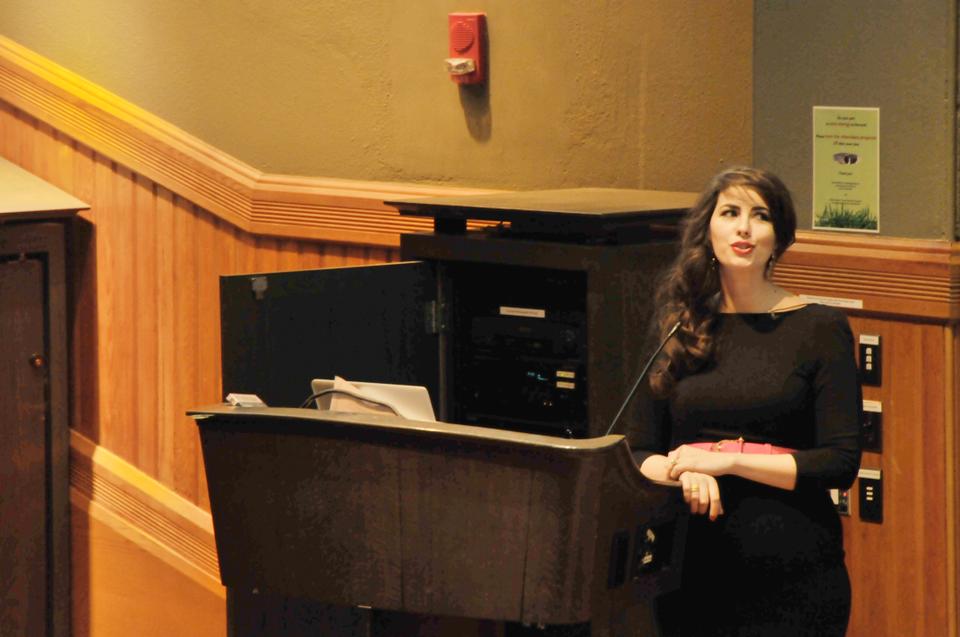
News
Summers Will Not Finish Semester of Teaching as Harvard Investigates Epstein Ties

News
Harvard College Students Report Favoring Divestment from Israel in HUA Survey

News
‘He Should Resign’: Harvard Undergrads Take Hard Line Against Summers Over Epstein Scandal

News
Harvard To Launch New Investigation Into Epstein’s Ties to Summers, Other University Affiliates

News
Harvard Students To Vote on Divestment From Israel in Inaugural HUA Election Survey
Jincey Lumpkin Discusses Sexual Consent

Jincey Lumpkin, known to some as the “lesbian Hugh Hefner” and the founder of Juicy Pink Box—a lifestyle brand that creates, among other things, erotic videos of lesbian fantasies—argued for a more comprehensive understanding of sexual consent at a lecture on Monday night.
Lumpkin said that much of what separates her brand of videos from the rest of the industry is her commitment to producing content that is exciting without promoting morally questionable relationships.
“There are a lot of inappropriate relationships portrayed in porn today, like fathers and daughters,” she said. “I just don’t think people should be encouraging inappropriate relationships.”
She said that part of her strong feelings against such relationships stem from her own sexual abuse as a child at the hands of her father. She said that often, porn portrays sexual actors persisting despite requests to stop.
“There are a lot of depictions of characters going on despite when someone says ‘no.’ That is not okay. If someone says no, then you stop,” she said. “No one wants to get raped.”
Lumpkin went onto say that sexual acts, whether depicted on screen or in real life, should only be pursued when people give informed consent, which she emphasized “is not just saying yes.”
“In order to give informed consent, the individual must have adequate reasoning faculties and be in possession of all relevant facts at the time consent is given,” Lumpkin said.
Lumpkin also discussed her reasons for founding Juicy Pink Box, saying that much of her motivation for founding the company emerged from what she perceived as a dearth of realistic lesbian porn.
“I wanted to create something that was not mainstream, but to create something that was arousing to me, but was still beautiful,” she said.
Students who attended the event appreciated Lumpkin’s frank discussion about what qualifies as consent.
“I think she did a great job of discussing the more difficult aspects of consent, which is an important topic that is not really discussed here,” said Arthur D. Kaynor ’12, a co-director of Peer Contact Counseling, one of the co-sponsors of the event.
Abby P. Sun ’13 echoed Kaynor’s sentiment.
“I think it is really important to understand that it is unequivocally not okay to have sex without consent,” Sun said. “I thought she did a great job of getting that message across.”
The lecture was part of Harvard’s annual “Take Back the Night” initiative, which sponsors a number of speakers and events throughout the month of April, discussing the connections between such topics as sexual assault, rape, race, porn, and pop culture, among others. The primary purpose of “Take Back the Night” is to educate college students about sexual assault and sexual health.
—Staff writer Mercer R. Cook can be reached at mcook@college.harvard.edu.
Want to keep up with breaking news? Subscribe to our email newsletter.
